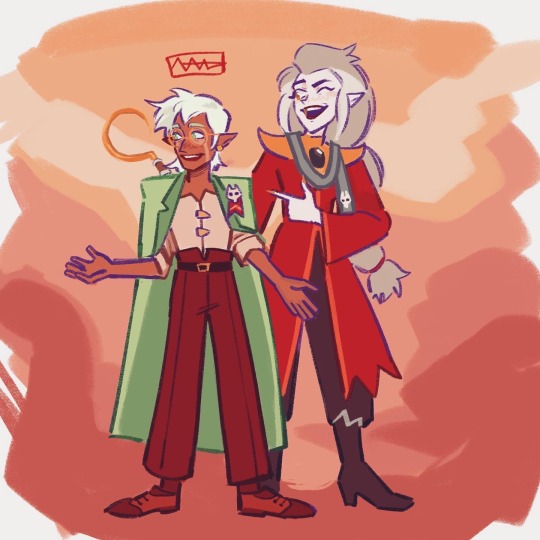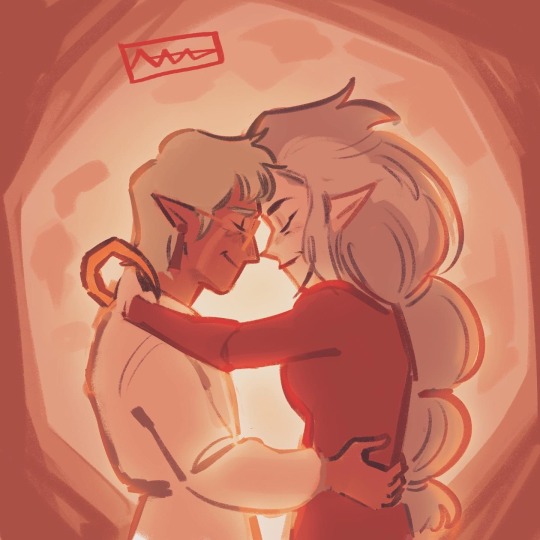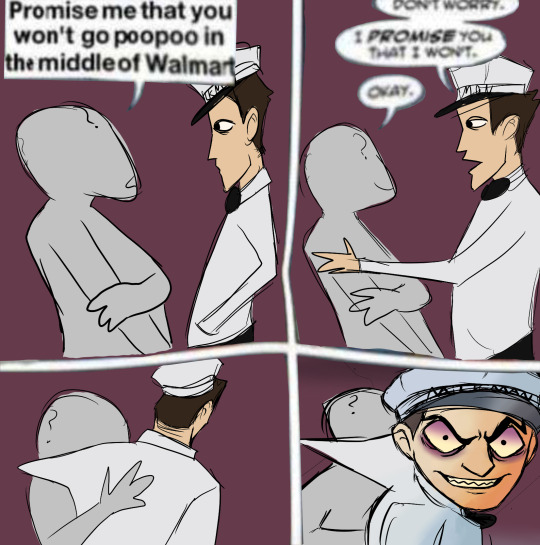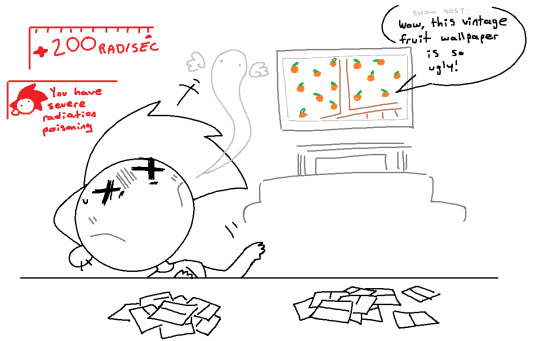#and cool old houses
Explore tagged Tumblr posts
Text

One of the benefits of photography as a hobby (even as amateurish as I am) is that it forces me to accept the fact that the world is a nice place to be and filled with nice things to see.
#digicam#digishit#pentax#q10#photography#urbex#urbexphotography#life is worth living#so long as there are frog photos to be taken#and cool old houses#and cars#and cows#and all the other things too#I read the myth of Sisyphus#now I'm insufferable
66 notes
·
View notes
Text

THE DOCTOR We had a pact, him and me. Every star in the universe, we were going to see them all.
My version of The Master and The Doctor in their Academy days 😊
A speedpaint video of this will be available at my Patreon on april 1st!
#doctor who#thoschei#doctor x master#academy era#my art#My thought process for their appearances here was sort of an average between their incarnations#the doctor is mostly taller and has messier and usually lighter hair while the master is shown to have had black hair in a flashback#also since Hartnell had white hair as an old man and we are not sure what color his hair was I thought what if it was always white#I've seen most draw him as blond but couldn't find any sources for it so I just went with this instead because it looks cool#I had fun making Prydonian robes designs!! I would love to design a bunch of Gallifreyan fashion for each Chapter and House it seems so fun#I also wanted to draw a Gallifreyan night!! since I never see any depictions of it even tho the planet should have nights#even if it's a binary system since the orbits would have to be very large for gravitational stability both suns would set at similar times#anyway I'll stop talking lmao 🫡
3K notes
·
View notes
Text









need what they have
#american horror story#tate and violet#american horror murder house#violet harmon#tate langdon#violet and tate#ahs murder house#ahs#girlblogger#manic pixie dream girl#2014 tumblr#lana del rey#tumblr aesthetic#i miss old tumblr#2010s tumblr#girlblogging#cool girl#grunge#murder house#tumblr girls#girl interrupted#evan peters#taissa farmiga#female madness#2014 revival#2014 nostalgia
1K notes
·
View notes
Note
Thinking about Bruce always feeling insecure about living up to his parents legacy, thinking about him feeling unworthy of using the master bedroom when he returned, thinking about him as Brucie uncounsciously taking his hookups to other rooms in the mansion, never to his (parent's), thinking about Bruce welcoming his kids in the master bedroom with open arms whenever they have nightmares, the same way his parents did to him, thinking about Clark feeling insecure about Bruce's true feelings towards him, thinking about Clark being totally oblivious to how big of a deal it is that he's alowed to sleep beside Bruce in the master bedroom.
The sanctity of the master bedroom is SO real. I grew up in a house with separate living quarters for staff (old old house) and the bedrooms for children were in a wing, and then the master suite and guest suites were in another section of the house. The implied distance between those sections is huge, even if they're only one closed door or a few feet away.
Bruce slowly accepting his place in the master suite -- now that's a fic I'd love to write. Keeping the hookups and random encounters to another equally lavish but different room or wing of the Manor, even. Somewhere that's easy to shuttle people in and out of, maybe near the laundry chutes or the servants' stairwells. Sleeping there even when he doesn't have guests, because the ghosts in the master suite are too much.
But maybe, once Dick is living with him, he can't justify it -- the master suite is near the children's rooms, and sleeping on another floor, away from a traumatized child, seems like a terrible idea. Alfred's rooms are too far away, nestled somewhere in the servants' quarters even though Bruce keeps trying to get him to take a guest suite.
So he takes over the suite, making it his own slowly but surely. Yet leaving portions of it untouched -- maybe the old floor to ceiling drapes, with their antiquated trim and beads. The double sinks in the en suite, made for a couple. He removes the four poster bed for a california king, modern enough to dispel any mental similarities. Big enough for a kid to come and hide, after a nightmare.
Clark being allowed in that room, even near that portion of the Manor? That's a huge step forward, a huge display of vulnerability and trust. It's not just Bruce's room, it's his parents' room, it's just off the children's wing, it is in many ways the heart of the residential portion of the Manor. All hallways, servant corridors, etc, lead there. And the more people that stay there, the more that suite is viewed truly as the center of the Manor itself, outside of the Cave and maybe Alfred's kitchen + butler's pantry.
#thoughts#old houses are so cool y'all#carriage houses and servants' bells etc#alfred pennyworth#bruce wayne#batman#dc#asks#anon#batfamily#clark kent#superbat#superman#batkids#thank you anon for such a cool ask#you're so right
392 notes
·
View notes
Text







1736 House, Barcelona - H-Arquitectes
#H-Arquitectes#architecture#design#building#modern architecture#interiors#minimal#house#concrete#house design#modern#concrete house#columns#courtyard#sky light#atrium#garden#living room#light#cool houses#beautiful home#amazing design#wood#balcony#old and new#renovation#spain#barcelona#spanish architecture#bedroom
220 notes
·
View notes
Text
patience being tested. being forced by a bizarre unfortunate situation to adhere to university requirement technicality by taking this simple basic elementary "introduction to environmental history" class.
this class is from facilitators/program which do, like, "history of the American frontier" or "history of fishing and hunting" and still basically subscribe to that old-school twentieth-century idealization and celebration of characters like Teddy Roosevelt and reverence for a mythical arc-of-history-bent-towards-justice narrative of the often-clumsy but ultimately-benevolent US federal government and its mission to "save nature" through the miracle of "sustained yield," while heroic federal land management agencies and "heritage" institutions lead to way, staffed by exceptional individuals (appeals to nostalgia for the frontier and an imagined landscape of the American West; ego-stroking appeals to flattering self-image that center the environmentalist or academic). where they invoke, y'know, ideas like "ecology is important because don't you enjoy cross-country skiing in The Woods with your niece and nephew? don't you like hunting and fishing?" which makes it feel like a time capsule of appeals and discourses from the 1970s. and it invokes concept of "untouched wilderness" (while eliding scale of historical Indigenous environmental relationships and current ongoing colonial violence/extractivism). but just ever-so-slightly updated with a little bit of chic twenty-first-century flair like a superficial land acknowledgement or a reference to "labor histories" or "history from below," which is extra aggravating when the old ideologies/institutions are still in power but they're muddying the water and diluting the language/frameworks (it's been strange, watching words like "multispecies" and "Anthropocene" over the years slowly but surely show-up on the posters, fliers, course descriptions, by now even appearing adjacent to the agri-business and resource extraction feeder programs, like a recuperation or appropriation.) even from a humanities angle, it's still, they're talking at me like "You probably didn't know this, but environmental history is actually pretty entangled with political and social events. In fact, we can synthesize sources and glean environmental info from wacky places like workers' rolls in factories, ship's logs, and poetry from the era." and i'm nodding like YEP.
the first homework assignment is respond to this: "Define and describe 'the Anthropocene'. Do you think 'the Anthropocene' is a useful concept? Why or why not?" Respond in 300 words.
so for fun, right now in class, going to see how fast i can pull up discussion of Anthropocene-as-concept solely from my old posts on this microblogging site.
---
ok, found some
---
I think that the danger in any universal narrative or epoch or principle is exactly that it can itself become a colonizing force. [...] I’m suspicious of the Anthropocene as concept for the very reason that it subsumes so many peoples, nations, histories, geographies, political orders. For that reason, I think ideas like the Anthropocene can be a useful short-hand for a cluster of tangible things going on with the Earth at the moment, but we have to be very careful about how fluid and dynamic ideas become concretized into hegemonic principles in the hands of researchers, policymakers, and politicians. There’s so much diversity in histories and experiences and environmental realities even between relatively linked geographies here in Canada [...]. Imagine what happens when we try to do that on a global scale - and a lot of euro-western Anthropocene, climate change and resilience research risks doing that - eliding local specificities and appropriating knowledge to serve a broader euro-western narrative without attending to the inherent colonial and imperial realities of science and policy processes, or even attending to the ways that colonial capitalist expansion has created these environmental crises to begin with. While we, as a collective humanity, are struggling with the realities of the Anthropocene, it is dangerous to erase the specific histories, power-relations, political orders that created the crisis to begin with. So, I’m glad that a robust critique of the Anthropocene as a concept is emerging.
Text by: Words of Zoe Todd, as interviewed and transcribed by Caroline Picard. “The Future is Elastic (But it Depends): An Interview with Zoe Todd.” 23 August 2016.
---
---
---
The Great Acceleration is the latest in a series of human-driven planetary changes that constitute what a rising chorus of scientists, social scientists, and humanists have labeled the Anthropocene - a new Age of Humans. [...] But what the Anthropocene label masks, and what the litany of graphs documenting the Great Acceleration hide, is a history of racial oppression and violence, along with wealth inequality, that has built and sustained engines of economic growth and consumption over the last four centuries. [...] The plantation, Sidney Mintz long ago observed, was a “synthesis of field and factory,” an agro-industrial system of enterprise [...]. Plantation legacies, along with accompanying strategies of survival and resistance, dwell in the racialized geographies of the United States’ and Brazil’s prison systems. They surface in the inequitable toxic burdens experienced by impoverished communities of color in places like Cancer Alley, an industrial corridor of petrochemical plants running along the Mississippi River from New Orleans to Baton Rouge, where cotton was once king. And they appear in patterns of foreign direct investment and debt servitude that structure many land deals in the Caribbean, Brazil, and sub-Saharan Africa [...]. [C]limatologists and global change scientists from the University of London, propose instead 1610 as a date for the golden spike of the Anthropocene. The date marked a detectable global dip in carbon dioxide concentrations, precipitated, they argue, by the death of nearly 50 million indigenous human inhabitants [...]. The degradation of soils in the tobacco and cotton-growing regions in the American South, or in the sugarcane growing fields of many Caribbean islands, for example, was a consequence of an economic and social system that inflicted violence upon the land and the people enslaved to work it. Such violent histories are not so readily evident in genealogies that date the Anthropocene’s emergence to the Neolithic Revolution 12,000 years ago, the onset of Europe’s industrial revolution circa 1800, or the Trinity nuclear test of 1945. Sugarcane plantations were already prevalent throughout the Mediterranean basin during the late middle ages. But it was during the early modern era, and specifically in the Caribbean, where the intersection of emerging proto-capitalist economic models based on migratory forced labor (first indentured servitude, and later slavery), intensive land usage, globalized commerce, and colonial regimes sustained on the basis of relentless racialized violence, gave rise to the transformative models of plantations that reshaped the lives and livelihoods of human and non-human beings on a planetary scale. [...] We might, following the lead of science studies scholar Donna Haraway and anthropologist Anna Tsing, more aptly designate this era the Plantationocene. [...] It is also an invitation to see, in the words of geographer Laura Pulido, “the Anthropocene as a racial process,” one that has and will continue to produce “racially uneven vulnerability and death." [...] And how have such material transformations sustained global flows of knowledge and capital that continue to reproduce the plantation in enduring ways?
Text by: Sophie Sapp Moore, Monique Allewaert, Pablo F. Gomez, and Gregg Mitman. "Plantation Legacies." Edge Effects. 22 January 2019. Updated 15 May 2021. [Bold emphasis added by me.]
---
---
---
Geologists and other scientists will fight over [the definition of the beginning start-date of the Anthropocene] in scientific language, seeking traces of carbon dioxide that index the worst offenses of European empire which rent and violated the flesh, bodies, and governance structures of Indigenous and other sovereign peoples in the name of gold, lumber, trade, land, and power. [...] The stories we tell about the origins of the Anthropocene implicate how we understand the relations we have with our surrounds. In other words, the naming of the Anthropocene epoch and its start date have implications not just for how we understand the world, but this understanding will have material consequences, consequences that affect body and land.
Text by: Heather Davis and Zoe Todd. On the Importance of a Date, or Decolonizing the Anthropocene. ACME An International Journal for Critical Geographies. December 2017. [Bold emphasis added by me.]
---
---
---
From Aime and Suzanne Cesaire, C. L. R. James, Claudia Jones, Eduoard Glissant, through Sylvia Wynter, Christina Sharpe, and so many others, critical anticolonial and race theory has been written from the specific histories that marked the Black Atlantic. [...] Glissant also reminds us, secondly, of how cunning the absorptive powers of [...] liberal capitalism are - how quickly specific relations are remade as relations-erasing universal abstractions. [...] This absorptive, relations-erasing universalism is especially apparent in some contemporary discourses of […] liberalism and climate collapse - what some call the Anthropocene - especially those that anchor the crisis in a general Human calamity which, as Sylvia Wynter has noted, is merely the name of an overdetermined and specific [White] European man. […] [T]he condition of creating this new common European world was the destruction of a multitude of existing black and brown worlds. The tsunami of colonialism was not seen as affecting humanity, but [...] these specific people. They were specific - what happened to them may have been necessary, regrettable, intentional, accidental - but it is always them. It is only when these ancestral histories became present for some, for those who had long benefitted from the dispossession [...], that suddenly the problem is all of us, as human catastrophe.
Text by: Elizabeth Povinelli. “The Ancestral Present of Oceanic Illusions: Connected and Differentiated in Late Toxic Liberalism.” e-flux Journal Issue #112. October 2020.
---
The narrative arc [of White "liberal humanism"] [...] is often told as a kind of European coming-of-age story. […] The Anthropocene discourse follows the same coming-of-age [...] script, searching for a material origin story that would explain the newly identified trajectory of the Anthropos […]. Sylvia Wynter, W.E.B. DuBois, and Achille Mbembe all showed how that genealogy of [White subjecthood] was [...] articulated through sixteenth- through nineteenth-century [historiographies and discourses] in the context of colonialism, [...] as well as forming the material praxis of their rearrangement (through mining, ecological rearrangements and extractions, and forms of geologic displacements such as plantations, dams, fertilizers, crops, and introduction of “alien” animals). […] As Wynter (2000) commented, “The degradation of concrete humans, that was/is the price of empire, of the kind of [Eurocentric epistemology] that underlies it” (154).
Text by: Kathryn Yusoff. “The Inhumanities.” Annals of the American Association of Geographers, Volume 11, Issue 3. November 2020.
---
---
---
As Yarimar Bonilla suggests in regard to post-Irma-and-Maria Puerto Rico, “vulnerability is not simply a product of natural conditions; it is a political state and a colonial condition.” Many in the Caribbean therefore speak about the coloniality of disaster, and the unnaturalness of these “natural” disasters [...]. Others describe this temporality by shifting [...] toward an idea of the Plantationocene [...]. As Moore and her colleagues write, “Plantation worlds, both past and present, offer a powerful reminder that environmental problems cannot be decoupled from histories of colonialism, capitalism, and racism that have made some human beings more vulnerable [...].” [W]e see that contemporary uneven socioecologies associated with the rise of the industrial world ["the Anthropocene"] are based [...] also on the racialized denial and foreshortening of life for the sacrificial majority of black, brown, and Indigenous people and their relegation to the “sacrifice zones” of extractive industry. [...] [A]ny appropriate response to the contemporary climate emergency must first appreciate its foundations in the past history of the violent, coercive, transatlantic system of plantation slavery; in the present global uneven development, antiblackness, and border regimes that shape human vulnerability [...] that continues to influence who has access to resources, safety, and preferable ecologies [...] and who will be relegated to the “plantation archipelagoes” (as Sylvia Wynter called them) [...].
Text by: Mimi Sheller. “Thinking Beyond Coloniality: Toward Radical Caribbean Futures.” Small Axe (2021), 25 (2 (65)), pages 169-170. Published 1 July 2021. [Bold emphasis added by me.]
---
---
---
Indigenous genocide and removal from land and enslavement are prerequisites for power becoming operationalized in premodernity [...]; it was/is a means to operationalize extraction (therefore race should be considered as foundational rather than as periphery to the production of those structures and of global space). [...] Wynter suggests that we […] consider 1452 as the beginning of the New World, as African slaves are put to work on the first plantations on the Portuguese island of Madeira, initiating the “sugar-slave” complex - a massive replantation of ecologies and forced relocation of people […]. Wynter argues that the invention of the figure of Man in 1492 as the Portuguese [and Spanish] travel to the Americas instigates at the same time “a refiguring of humanness” in the idea of race. [...] The natal moment of the 1800 Industrial Revolution, […] [apparently] locates Anthropocene origination in […] the "new" metabolisms of technology and matter enabled by the combination of fossil fuels, new engines, and the world as market. […] The racialization of epistemologies of life and nonlife is important to note here […]. While [this industrialization in the nineteenth century] […] undoubtedly transformed the atmosphere with […] coal, the creation of another kind of weather had already established its salient forms in the mine and on the plantation. Paying attention to the prehistory of capital and its bodily labor, both within coal cultures and on plantations that literally put “sugar in the bowl” (as Nina Simone sings) […]. The new modes of material accumulation and production in the Industrial Revolution are relational to and dependent on their preproductive forms in slavery […]. In 1833, Parliament finally abolished slavery in the British Caribbean, and the taxpayer payout of £20 million in “compensation” [paid by the government to slave owners for their lost "property"] built the material, geophysical (railways, mines, factories), and imperial infrastructures of Britain and its colonial enterprises and empire. [...] A significant proportion of funds were invested in the railway system connecting London and Birmingham (home of cotton production and […] manufacturing for plantations), Cambridge and Oxford, and Wales and the Midlands (for coal). Insurance companies flourished [...]. The slave-sugar-coal nexus both substantially enriched Britain and made it possible for it to transition into a colonial industrialized power […]. The slave trade […] fashioned the economic conditions (and institutions, such as the insurance and finance industries) for industrialization.
Text by: Kathryn Yusoff. "White Utopia/Black Inferno: Life on a Geologic Spike". e-flux Journal Issue #97. February 2019. [Bold emphasis added by me.]
#sorry for being mean#instructor makes podcasts about cowboys HELP ME#and he recently won a New Business award for his startup magazine covering Democrat party politics in local area HELP#so hes constantly performing this like dance between new hip beerfest winebar coolness and oldfashioned masculinity#but hes in charge of the certificate program so i have to just shut up and keep my head down for approximately one year#his email address is almost identical to mine and invokes enviro history terms but i made mine long before when i was ten years old#so i could log in to fieldherpforum dot com to talk about enviro history of distribution range changes in local reptiles and amphibians#sir if you read my blog then i apologize ive had a long year#and i cant do anything to escape i am disabled i am constantly sick im working fulltime i have NO family i have NO resources#i took all of this schools graduate level enviro history courses and seminars years ago and ran the geography and enviro hist club#but then left in final semester because sudden hospitalization and crippled and disabled which led to homelessness#which means that as far as any profession or school is concerned im nobody im a retail employee#i was doing conference paper revisions while sleeping on concrete vomiting walking around on my cane to find outdoor wifi#and im not kidding the MONTH i got back into a house and was like ok going back to finish the semester the school had#put my whole degree program and department in moratorium from lack of funding#and so required starting some stuff from scratch and now feel like a hostage with debt or worsening health that could pounce any moment#to even get back in current program i was working sixteen hours a day to pay old library fines and had to delicately back out of workplace#where manager was straight up violently physically abusive to her vulnerable employees and threatened retaliation#like an emotional torturer the likes of which i thought existed only in cartoons#and the week i filed for student aid a massive storm had knocked out electricity for days and i was clearing fallen tree debris#and then sitting in the dark in my room between job shifts no music no phone no food with my fingers crossed and i consider it a miracle#sorry dont mean to dramatize or draw attention to myself#so actually im happy you and i are alive
133 notes
·
View notes
Text


The last episode of “The Owl House” just arrived! I will miss this show a lot haha
#raeda#cool old people#toh s3#raeda my beloved#the owl house#theowlhousefanart#the owl house season three spoilers#the owl house season finale#the owl house season 3#the owl house fandom#disney#animated shows#raine whispers#eda clawthorne#eda the owl beast#the owl house raeda#raeda brainrot#my sillies#Spotify
3K notes
·
View notes
Text

Yet another Owl House drawing I never finished (of which there are many lol)
It was a dual redraw of/homage to my first ever fanart from the day the pilot episode aired (below the cut), but this time done right after the show ended and with Eda's updated look! Though I lost steam fast I kinda like it this way lol, one of those things that probably would have lost its energy if I tried to line it yknow

#the owl house#eda clawthorne#edalyn clawthorne#toh#eda the owl lady#fanart#watching and dreaming#toh spoilers#the owl house spoilers#redraw#kinda#dana terrace actually retweeted my old one when i first did it :)#was preddy cool#i have been in a state of wanting to draw but not having the energy to for like. weeks lol#so might as well just bring out some stuff from the proverbial disney vault (my computer hard drive)#love that her staff is 100% behind her in the original from 2020#girl is sitting on thin air#shes doing that gymnastics move they do on the pommel horse
916 notes
·
View notes
Text

The Times Herald vintage ad for House on Haunted Hill (1959)
#vincent price#the house on haunted hill#house on haunted hill#advertising#ad#vintage ad#vintage photography#vintage newspapers#how cool is this?#william castle#horror#classic horror#vintage#old horror movies
228 notes
·
View notes
Note
what kind of frivolity would you engage in, mecha?
<






---




#mecha sonic#scrapnik mecha sonic#scrapnik island#sonic fanart#sonic fandom#arting#msab#good MORNING. i have given myself many emotions about mecha's big stupid cape. like a fool. such is the way i suppose#god ive been dying to get to this one. do you get it. do you understand#victories; if not on your own terms. achievements; if not the ones you thought you wanted. childhood dreams that never die.#which on that note yeah this is also my favorite one for showing eggman-era mecha as like#''yeah hes hes the most arrogant and murderous jackass on the planet but hes also like 17.''#& therefore kind of a lame little nerd by default. he thinks capes are sooooooo coool#we were all stupid kids once but sometimes u get older and u still wanna paint your house purple. and sometimes u still want a cool cape#it occurs to me that actual 17-year-olds may see this and to that i say: sorry. you guys are fine do ya thang.#its just that im 29 and have grey hair and shit so i have a certain Perspective on being 17 is all. & scrapnik mecha is like mid-30's to me#i knoooowwww he loves his big stupid cape so much. look at the refsheets with his dumbass spines poking holes through the the hood#tell me he has not made a COMMITMENT to wearing that hood despite being built in a way that makes that incredibly inconvenient#u look at nathalie fourdraine's christmas scrapniks post and tell me he isnt having so much fun#being all decorated and swishing around in that Even Bigger And Stupider Cape & shawl w/ his friends#hes so funny for that he's generally such a serious kinda character but on god he does also love some showmanship and flashiness.#i want to make it clear btw i also think capes are awesome i literally cosplay a guy with Two [2] capes.#& mecha is basically the coolest ever. but also hes still funny for that
113 notes
·
View notes
Text

The original in the bottom

Plus the picture I mainly drew but decided to draw the rest for funny

#thats not my neighbor#milk man#just tried to draw something in my mind to post along with saying some updates#monday the people are gonna give my grandma the keys to the house! while i have to stay at my aunts place for wifi for school#(online school)#my moms gonna be moving things out of storage into the house! AAAA I CANT WAIT#also little welcome home update#im not sure if i said here? wait nevermind i just remembered while typing (it was that i got barnaby and the pins) AAA silly me#also im making a little julie out of clay (if i wake up and their messed up i am NOT redoing that😭)#the legs are a little messed up because julie was gonna be the size of an hatsune miku figure on accident so i chose to shorten her a bit#only because im not sure if im gonna make the others too AND because theres no way hes gonna be THAT tall😭#also! im making easter art#yes its barnaby and wally again just for fun! but a few changes like keeping their regular outfits because i cant think of anything else!!!#why not the ones in the old easter drawing? welllll a follower said that wallys outfit looked a bit familiar to another not so good thing#it wasnt on purpose just an accident because i hadn't notice BUT im glad i know now so i can be more careful!#im not sureeee if im gonna finish the easter art OR the julie clay thingy but I'd love too! and honestly HOPE to#high chance i will (well maybe the easter art could be late or not)#maaaaaaaaaaaAAAAAA trying to think if theres anything else but cant! ill try posting this hoping my wifi wont hate me...#also i know i said this account was for welcome home posting but i didnt have any cool welcome homey things to put here gahhhhh#ehehehhe once i get my new room and its allllll just me#imma post like crazy (wellll that IS the plan so i hope)#even if its little dumb posts#by the way this post was gonna say on top “i know i said this account is for welcome home posting but TAKE THIS FOR LITTLE UPDATES”#just removed it because i dunnooooo just didded#hehe didded
284 notes
·
View notes
Text

the castle may be crumbling around them but they are NOT leaving without that furniture
#castlevania#harmony of dissonance#juste belmont#lydie erlanger#maxime kischine#they need all that furniture for their house where they live happily ever after#and nothing bad ever happens#idc what nocturne says#(but old man juste was very cool and i loved it)
61 notes
·
View notes
Text


me speeding to count stock as fast as possible to avoid taking radiation damage from my parents god-awful taste in television
are these Really the ugliest homes in america or is your personality just equivalent to a cheap, wet paper towel. are these Really the ugliest homes in america or do you take your home decor inspiration from psychiatric hospitals and white women on pinterest named Meykaighlahe
just say you hate art and go build your dream unseasoned microwave mashed potato of a house in fucking utah or something oh my gOD
#ms paint#dat me#art#life is paint#IF YOU DONT LIKE IT WHY THE FUCK DID YOU MOVE THERE !!!!!!!!!!!!!! SCREAMS#these shows make me homicidal fr#70% of the houses on that stupid fucking show are by majority legitimately so cool and beautiful dude i am losing my mind#''its a historic house but i dont want any of the history or aesthetic that goes with it'' i am going to dropkick you lady. to death.#getting my own place and literally banning the viewing of any HGTV show under my fucking roof#how are there so many old people with such GARBAGE fucking taste in interior design#y'all grew up in the 60s 70s and 80s and learned fucking Nothing ?????????? HELLO ???????????????
349 notes
·
View notes
Text

Pictures I drew of Luz, Edric, and Amity as Titans :P
#the owl house#the owl house fanart#toh fanart#toh#luz noceda#edric blight#amity blight#THESE ARE PRETTY COOL WHAT#THEY'RE SO OLD I DON'T REMEMBER THEM WELL#BUT THESE ARE REALLY GOOD DESIGNS#I was studying Titans a lot while I was drawing these#had myself folders of references#very morbid references. nonetheless-
65 notes
·
View notes
Text







Terraced Housing, Winterthur, Switzerland - Peter Kunz
#Peter Kunz#architecture#design#building#modern architecture#interiors#minimal#house#concrete#house design#modern#contemporary#contemporary architecture#concrete house#old and new#timber frame#historic buildings#extension#housing#terraced house#switzerland#swiss design#cool design#beautiful buildings#light#white walls#architectural photography#stairs#timber#skylight
152 notes
·
View notes
Text
I'm thinking abt Odile again. I like to imagine that half her childhood was her reading a book before getting to a scene with cool imagery and the putting the book down to go Craft some clay or smth to recreate the scene for like 5 hours and the staring at it for another 5 hours and then going back to reading the book only to do the same thing like 2 paragraphs later
#rat rambles#stars posting#just her lil kid brain going woag. I need to exterince this again. I think she also did this the other way around too#just her getting left behind on accident during an outing because she saw a cool statue or smth that made her want to write smth#Im just imagining like 10 year old odile just sitting on the ground in the middle of a crowded plaza somewhere unbothered and enriched#she may not have friends but at least she has a house filled to the brim with random shit she crafted from reading like one book
76 notes
·
View notes